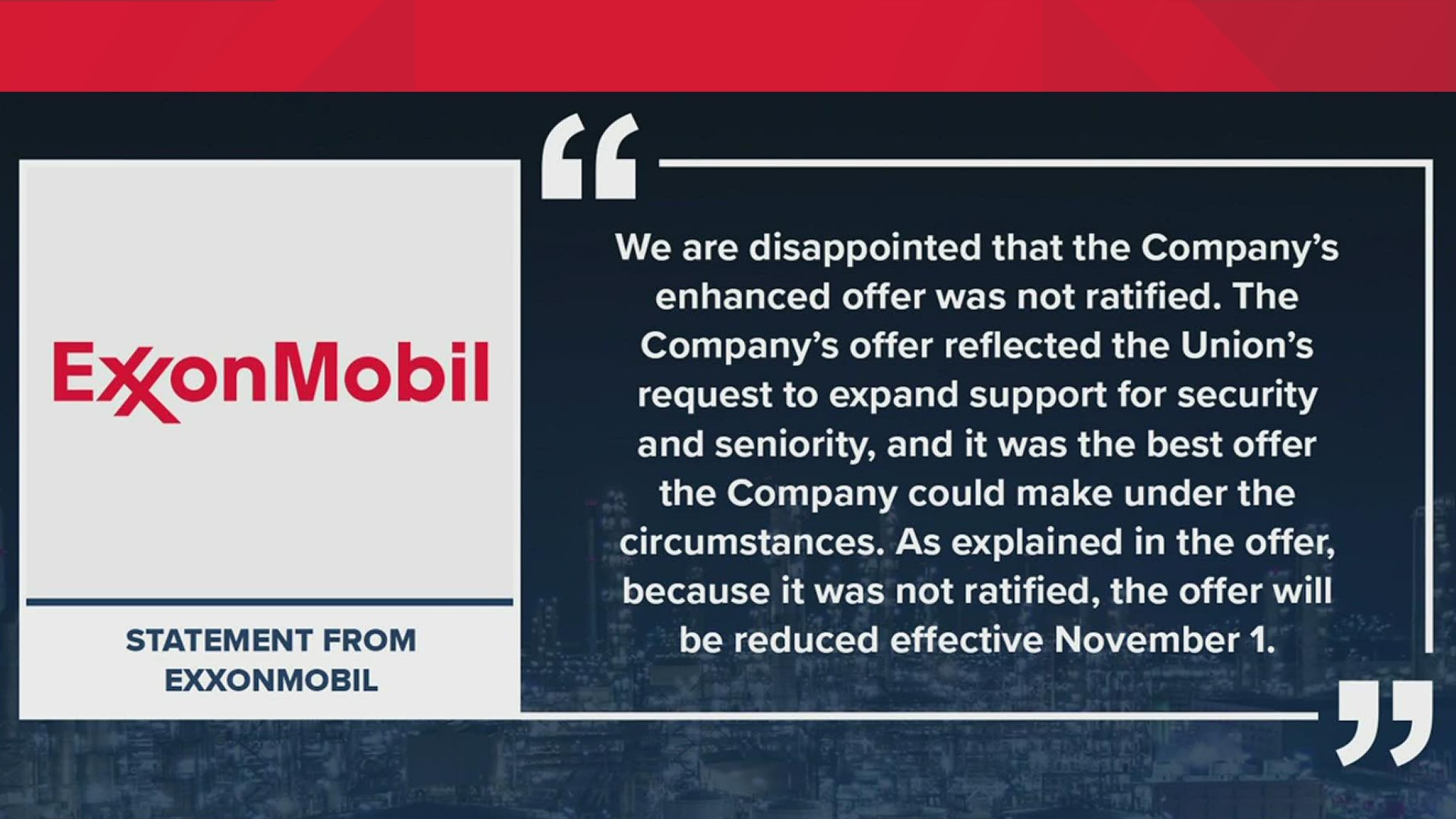BEAUMONT, Texas — It's been more than 24 hours since a majority of the 399 United Steelworkers union members voted "no" on the latest offer from ExxonMobil, continuing the nearly six-month-long lockout. The company said it's disappointed.
Union representative Bryan Gross said the vote is a sign that members are in the fight for the long haul.
The latest development has left many with more questions than answers.
What's it going to take for them to come to terms to end the lockout? Is the end coming anytime soon?
A labor and environmental studies expert with Cornell University explained how cases like this usually start and end, and how the case with ExxonMobil and the union workers compares to others around the country and in the past.
All around the country, workers are going on strike.
"People are referring to this is as strike-tober,” said Arthur Wheaton, director of Western New York Labor And Environmental Programs at Cornell University.
He said strikes are happening right now due to overworked employees as a result of increased demand and inflation.
"John Deere with tractors the UAW is out on strike, nurses and healthcare out on strike, mineworkers out on strike," Wheaton said.
But, here in Beaumont, workers aren't on strike; they're locked out.
"A lockout means management stopped negotiations and refused to continue bargaining and locked out employees,” Wheaton said. “A strike means the membership or the union walked out and refuses to work."
Half a year in, Gross said Tuesday’s decision to refuse the company’s latest offer was a sign of where they stand.
"As long as the membership stands with us, it’s the membership’s decision,” Gross said. “That’s why we had the vote we had. We wanted to leave it up to them and 400 people voted and gave us a clear message on where we're at."
The company is also standing its ground.
“We are disappointed that the Company’s enhanced offer was not ratified. Our offer reflected the outcome of months of bargaining and included the Union’s requests to expand support for security and seniority. This was the best offer the Company could make under the circumstances. As explained in the offer, because it was not ratified, the offer will be reduced effective November 1,” ExxonMobil said in part in an October 19 news release.
Wheaton said lockouts are a war of attrition.
"You lose your house. You lose your car. You lose everything else to be able to afford it. And from the company perspective, you’re losing revenue if you're not able to make product," Wheaton said.
Wheaton said they can also become a public relations battle.
"If their stock price is dropping, if they get more calls to settle it, they are more likely to end it sooner," Wheaton said.
But in the end, both sides should be looking to meet in the middle.
"And the best you can do is send it back to the table until you come up with a deal. That's the best option, and that’s the entire way US labor law is built," Wheaton said.
ExxonMobil said if the union doesn't approve its current offer by November 1, certain employee proposals will be removed.

